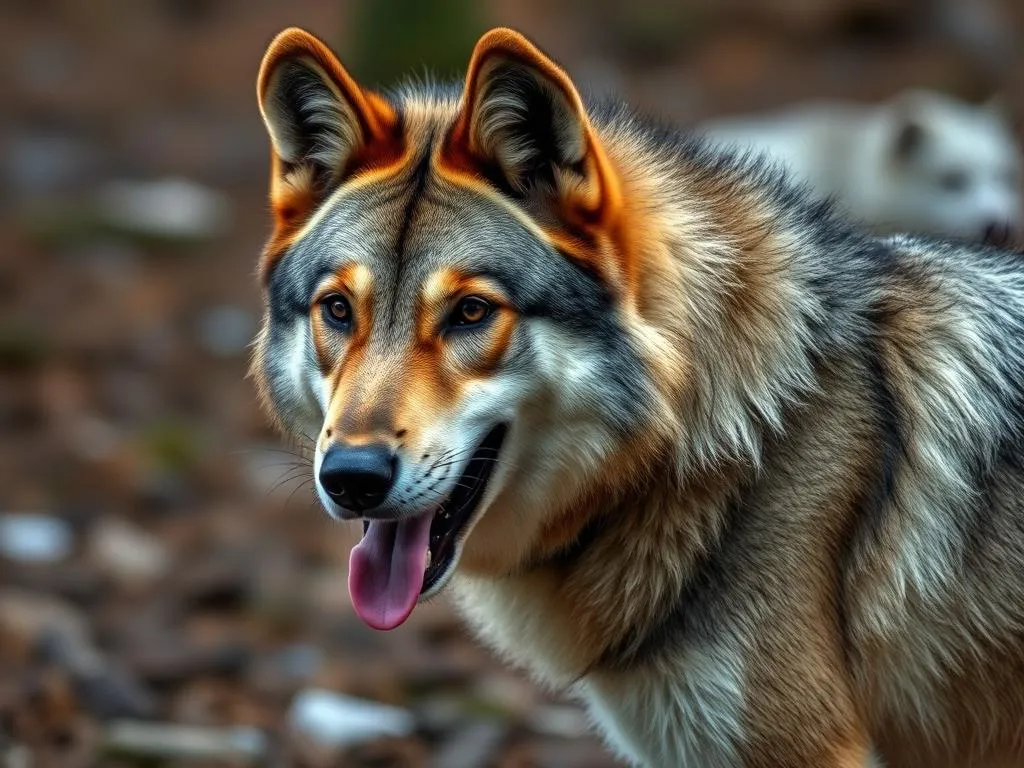
Introduction
Wolf dogs, a captivating blend of domestic dogs and wolves, have become increasingly popular among animal enthusiasts. These unique hybrids often capture the imagination with their striking appearance and wild instincts. However, owning a wolf dog comes with a set of responsibilities that surpass those of traditional dog breeds. Understanding the complexities of wolf dog training is essential for ensuring a harmonious relationship between the owner and the pet.
Overview of Wolf Dogs
Wolf dogs are defined as hybrids resulting from the mating of a domestic dog with a wolf. Their characteristics can vary significantly based on the percentage of wolf genes and the specific breeds involved. Common breeds found in wolf dog hybrids include Siberian Huskies, Alaskan Malamutes, and German Shepherds. Unlike typical domestic dogs, wolf dogs may retain many traits inherited from their wild ancestors, which can influence their behavior, socialization, and training requirements.
Importance of Proper Training
Training a wolf dog is not just beneficial; it is crucial. These animals often exhibit behaviors that can be challenging for even the most experienced dog owners. Proper training addresses the unique challenges posed by wolf dogs, including their strong prey drive, independence, and social structures. Effective training fosters safety, strengthens the bond between the owner and the wolf dog, and helps mitigate behavioral issues.
Understanding Wolf Dogs
What is a Wolf Dog?
A wolf dog is classified as a hybrid, with varying degrees of wolf ancestry. The classification of these hybrids can range from low-content (more domestic dog traits) to high-content (closer to wolf traits). The behavior and temperament of a wolf dog can differ widely, depending on its lineage. Understanding these classifications is vital for prospective owners to ensure they choose a wolf dog that fits their lifestyle.
Behavioral Traits
Wolf dogs inherit various instincts and behaviors from their wild ancestors. These may include a strong prey drive, heightened curiosity, and a tendency to escape. Their social behavior is also influenced by the pack mentality of wolves, which means they may require more rigorous socialization and training than typical domestic dogs. Understanding these traits allows owners to tailor their training methods effectively.
Legal and Ethical Considerations
Before acquiring a wolf dog, potential owners must be aware of the legalities involved. Many regions have strict regulations concerning the ownership of wolf dogs, often requiring permits or even prohibiting them altogether. Additionally, ethical considerations around the breeding of wolf dogs should not be overlooked. Responsible ownership means ensuring that the wolf dog is bred and trained in a manner that prioritizes its well-being and socialization needs.
The Importance of Training
Why Training is Essential
Training is essential for the safety of both the wolf dog and the public. Due to their unique behavioral traits, inadequately trained wolf dogs can pose risks, including aggression or anxiety. Training can prevent these behavioral issues and promote a well-adjusted animal. Furthermore, effective training helps create a safe environment for the owner, their family, and the community.
Differences in Training Techniques
Training a wolf dog requires different techniques compared to traditional dog training. While positive reinforcement remains a cornerstone of effective training, wolf dogs often respond better to methods that respect their independence and natural instincts. Understanding these differences is key to successful wolf dog training.
Preparing for Training
Assessing Your Wolf Dog
Before beginning training, it is crucial to assess your wolf dog’s temperament and personality. Each wolf dog is unique, influenced by its lineage and socialization experiences. Understanding these factors helps tailor a training plan that addresses the specific needs of the individual animal.
Setting Realistic Goals
Setting achievable training goals is vital for successful wolf dog training. Owners should establish both short-term and long-term objectives. Short-term goals might include basic commands, while long-term goals could focus on advanced socialization or behavioral modifications. Patience and persistence are essential, as training a wolf dog often requires more time than training a standard dog.
Equipment and Environment
Equipping yourself with the right tools can make a significant difference in the training process. Recommended equipment includes sturdy leashes, comfortable harnesses, and training treats. Additionally, creating a safe, conducive training environment is crucial. This space should be free from distractions and allow for positive reinforcement during training sessions.
Training Techniques
Basic Commands
Teaching basic commands is the foundation of wolf dog training. Commands such as “sit,” “stay,” and “come” are essential for establishing control and communication. Consistency and repetition are key; ensure that commands are practiced regularly and that all family members use the same cues to avoid confusion for the wolf dog.
Socialization
Socialization is critical for wolf dogs to develop into well-adjusted pets. Exposing them to various environments, people, and other animals can help reduce anxiety and aggression. Positive experiences during socialization can lead to a more confident and adaptable wolf dog. Start with controlled introductions and gradually expose your wolf dog to new situations.
Advanced Training Techniques
Once basic commands are mastered, advanced training techniques can be introduced. Clicker training and positive reinforcement are particularly effective for wolf dogs. Addressing specific behavioral issues, such as fear or aggression, may require specialized strategies. Consulting with a professional trainer experienced in wolf dogs can provide guidance tailored to your pet’s unique needs.
Building a Strong Bond
Establishing Trust
Building trust is fundamental in the relationship between owner and wolf dog. Trust can be established through consistent training, positive interactions, and respecting the wolf dog’s boundaries. Techniques such as gentle handling, providing treats, and engaging in play can foster a trusting relationship.
Engaging in Activities Together
Engaging in activities together strengthens the bond between owner and wolf dog. Activities like hiking, agility training, or even simple games of fetch can provide both physical and mental stimulation. These shared experiences not only enhance the training process but also deepen the emotional connection between the two.
Resources for Wolf Dog Owners
Recommended Books and Guides
Reading materials can offer valuable insights into wolf dog training. Books by reputable authors and trainers provide guidance on the nuances of handling wolf dogs. Selecting resources that focus on both behavior and training techniques can further enhance your understanding of these unique animals.
Online Communities and Forums
Online resources and communities can be invaluable for wolf dog owners. Engaging with other owners through forums can provide support, share experiences, and offer advice on training challenges. Connecting with like-minded individuals fosters a sense of community and helps navigate the complexities of raising a wolf dog.
Professional Training Assistance
In some cases, seeking professional training assistance may be necessary. Finding a trainer experienced with wolf dogs can provide tailored advice and strategies. Professional trainers can help address specific behavioral issues and ensure that training is effective and safe.
Conclusion
Owning and training a wolf dog is a profoundly rewarding experience, but it requires dedication, understanding, and patience. By grasping the unique characteristics of wolf dogs and implementing effective training techniques, owners can foster a safe, healthy, and loving environment. The journey of wolf dog training is an ongoing process, filled with learning and growth for both the owner and the pet.
Wolf dogs can thrive in a well-structured environment, cultivating a bond that is both fulfilling and enriching. Embrace the challenges and joys of wolf dog ownership, and remember that with commitment and love, you can create a harmonious life together.









